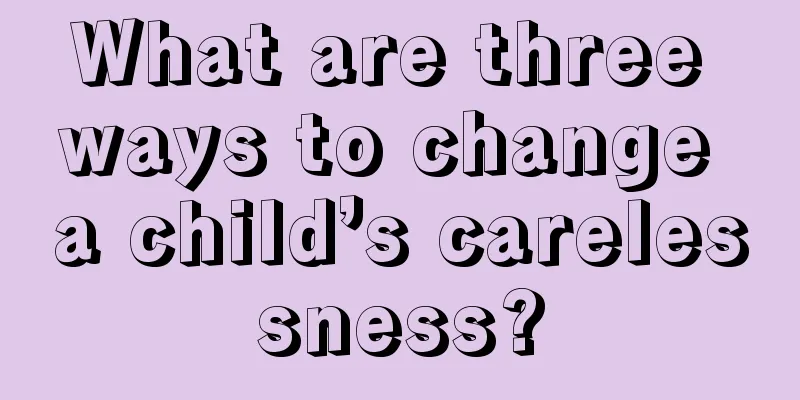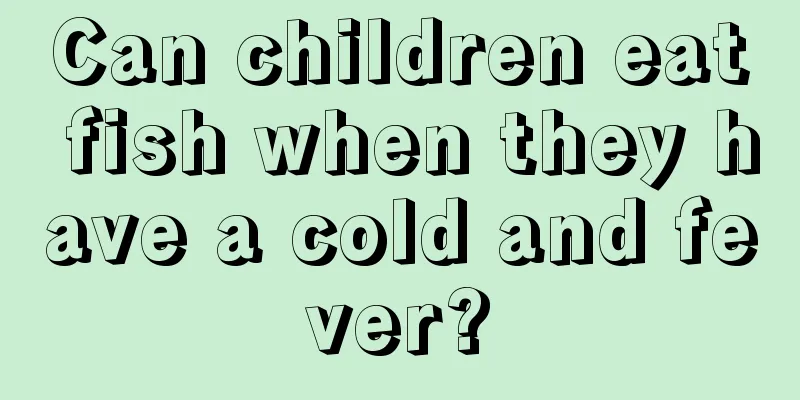What to do if your 3-year-old baby has a rebellious temper

|
Parents should use different educational methods for babies at different ages. When a child is three years old, he or she is more rebellious. Especially if the child is naughty, willful and disobedient, it is easy to make the parents unhappy, and this time often makes parents exhausted. So what should you do if your three-year-old baby has a rebellious temper? Uncover the reasons why children rebel (1) The necessary process for children’s growth and development As the baby grows and develops, various aspects of the body function gradually mature, the baby's physique also develops rapidly. At this time, the baby can do many trivial things in daily life. They also begin to extremely desire to have their own independent activity space, to do what they want, and to constantly try some things that they find new and strange. On the one hand, the child begins to mature mentally, but on the other hand, the parents have not yet begun to realize the child's development and growth, and still stand from the perspective of taking care of everything for the baby. Parents may be afraid that the child is still young and does not know how to protect themselves, so when they see the baby's behavior, they put many obstructions and restrictions on it. It is conceivable that the baby will have resistance. (2) The baby begins to develop a sense of self In the early stages, babies may not know what "their own wishes" and "other people's wishes" are, so many times they will do whatever their parents say. When the baby reaches the age of two or three, the baby's self-awareness begins to strengthen, and he begins to understand what others want him to do and what he wants to do. Therefore, when the child is just forming this kind of thinking, the baby's attitude towards expressing himself is also extremely intense, and he becomes extremely resistant to things he doesn't want to do. When a baby's self-awareness conflicts with the norms and requirements of adults, the baby will feel frustrated, which will eventually lead to rebellious behavior. (3) The baby’s ability to “control his/her emotions” is still weak Babies aged two or three have never experienced anything and do not understand what self-emotional control is. Once their demands are not met, they will express themselves without any concealment. Usually crying and making noise are the best ways for babies to vent. When parents face their children's unreasonable behavior, they will think that their children are disobedient and rebellious, so they begin to stop and oppose them. Once the children and their parents are in opposition, the children will show "resistance". How to deal with children's rebellious behavior? (1) Cause tracing method It is an inevitable stage for children to rebel in their growth and development. Parents must treat it rationally and not blindly stop or oppress them, let alone resort to beating or scolding. This is a very stupid method. Not only will it fail to change the child's rebellious behavior, it will also seriously affect the child's healthy growth. Therefore, when parents face their children's disobedience, they should understand the reasons behind their children's disobedience, so that they can "prescribe the right medicine" and "cure the disease"! (2) Appropriate laissez-faire approach When children reach a certain age, they will begin to like saying "no" to their parents. This is the first step for them to establish their self-esteem and self-esteem. The reason is nothing more than to demand equal status with adults, so that they can do what they like instead of just following their parents' orders. At this time, children have their own thoughts and ideas. What parents should do is to respect their children's ideas and think more from their perspective. If the children's behavior and ideas do not involve safety issues or principle issues, parents can let their children do what they want. Parents can do this not only to make their children happy, but also to make themselves feel more at ease and less "worrying"! (3) Avoid the “forcing growth” approach It is understandable that many parents hope their children will become successful, but everything must be based on the child's actual situation and respect the child's physical and mental development. What parents ask their children to do should be reasonable. Parents should strictly require their children to do what the children can accomplish. Parents should not force their children to do things that are within their abilities or that they do not want to do. Otherwise, it will backfire and cause irreparable harm to the children. (4) Encourage Tolerance Law When parents find that their children are always disobedient and rebellious, in addition to realizing that this is a normal stage of the child's psychological development, parents should adopt scientific coping methods instead of turning a blind eye, which will really turn the child into a bad child. When facing children's rebellion, parents should give their babies more tolerance, care and communication than before. Listen patiently to your baby's inner thoughts, understand your baby's needs, ask your baby what he thinks, why he does this, and how to minimize your baby's rebelliousness and rejection of his parents. (5) Avoid the “pampering and indulgence of children” approach It is normal for babies to like to say "no" to their parents, but if you leave it alone or give in to their every move, they will develop a willful and arrogant character. Therefore, as parents, for those willful babies who always use sarcasm to achieve their unreasonable demands, we should: (1) calmly reason with them, introduce relevant knowledge, explain why their demands cannot be met, and curb their willful and stubborn behavior. (2) Try to divert your baby’s attention by using something else that interests him more so that he will give up the unreasonable request. (3) If persuasion is ineffective, parents should clearly state their attitude: unreasonable demands will not be met no matter how much the child makes a fuss. Then parents should immediately walk away and use the cold treatment method to put an end to the child’s unreasonable demands. As the baby grows older, it is normal for him to have rebellious behavior. Parents do not need to worry too much at this time, but they should pay attention to how they deal with their children's rebelliousness. Only when parents understand their baby's behavior can they cultivate their baby's abilities in a targeted way and ensure their baby's healthy growth. |
<<: The impact of a father's bad temper on his children
>>: What to do if your two-year-old has a bad temper
Recommend
How many pounds does a newborn baby normally gain per month?
Newborns need careful care from their parents aft...
How many times a day should a 50-day-old baby poop?
After birth, newborns will defecate almost every ...
What are the clinical manifestations of children with cerebral palsy?
Every parent hopes that their children can grow u...
Why are the skin on children's fingers peeling?
Children are the weakest because of their low res...
What are the symptoms of dryness?
For children, they should develop good living hab...
How to solve the itchy red bumps on children?
If a child's skin has red bumps and is very i...
Are latex mattresses suitable for children?
People spend most of their lives sleeping, so how...
What causes red spots on children's faces?
Children are very weak and have very poor resista...
The harm of alcohol cooling to children
The effect of alcohol on cooling down is not unfa...
How many days will it take for the infantile rash to go away?
In daily life, roseola infantum is a relatively c...
What causes insect bite dermatitis in children?
When children are young, their skin is relatively...
What should children eat to cure cough and phlegm?
Children have weak resistance and are prone to ca...
Children have diarrhea after taking anti-inflammatory drugs
We all know that anti-inflammatory drugs are an i...
Prevention and treatment of hand, foot and mouth disease in children
The incidence of hand, foot, and mouth disease in...
How to treat a five-year-old child with a fever
Cold is a very distressing disease, especially wh...









